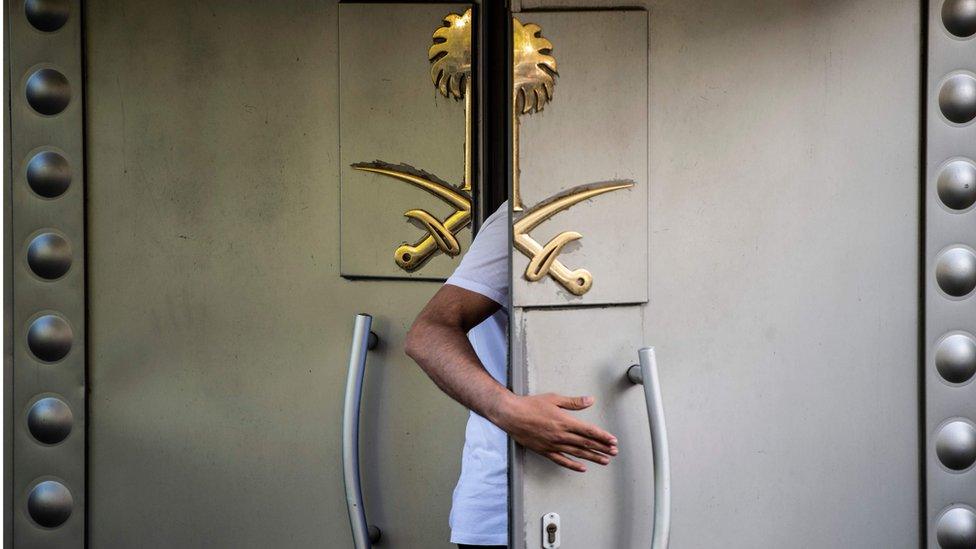Jamal Khashoggi: Trump gives Saudi benefit of doubt in Khashoggi case
- Published
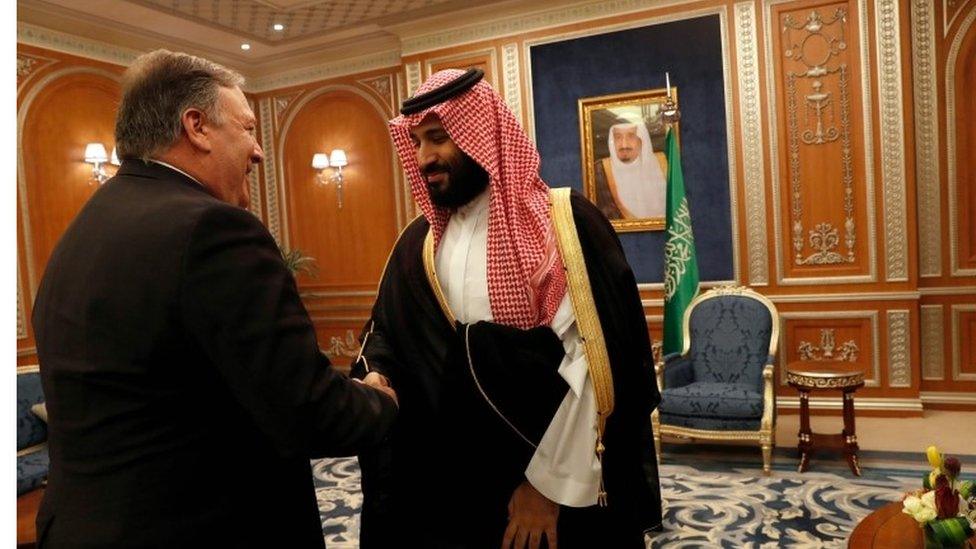
US Secretary of State Mike Pompeo met the Saudi crown prince in Riyadh on Tuesday
US President Donald Trump has cautioned against rushing to blame Saudi Arabia over the disappearance of Saudi journalist Jamal Khashoggi.
He told the AP news agency that Riyadh was being treated as "guilty until proven innocent".
Mr Trump also said that Saudi Crown Prince Mohammed Bin Salman had denied knowing what happened to Mr Khashoggi.
Unnamed Turkish officials say a search of the Istanbul Saudi consulate gave more evidence that he was killed there.
The journalist, a critic of the Saudi leadership, was last seen alive entering the consulate on 2 October. Saudi Arabia has denied killing him and initially said he left the building unharmed.
However, the New York Times reports that four of the 15 people named by the Turkish authorities as suspects in Mr Khashoggi's disappearance have links to the crown prince, external, while another is a senior figure in the country's Interior Ministry.
According to the newspaper, one of the men has been photographed accompanying the royal on recent foreign visits.
The case has put Saudi Arabia under pressure from close allies.
On Tuesday, G7 foreign ministers called for Saudi Arabia to conduct a "transparent" probe into the issue.
Meanwhile, International Monetary Fund chief Christine Lagarde has become the latest high-profile figure to withdraw from a major Saudi investment conference next week following Mr Khashoggi's disappearance.
US Secretary of State Mike Pompeo has arrived in Turkey for talks with President Recep Tayyip Erdogan, following a meeting with Saudi King Salman and the crown prince on Tuesday.
What has Prince Mohammed said?
The Saudi heir apparent wields considerable power in the kingdom and is being held responsible by many outside for whatever happened to Mr Khashoggi.
Mr Trump tweeted that Prince Mohammed had spoken to him on the phone and he "totally denied any knowledge of what took place in their Turkish Consulate". , external
The president said he "told me that he has already started, and will rapidly expand, a full and complete investigation into this matter. Answers will be forthcoming shortly".
The phone call coincided with a visit to Saudi Arabia by US Secretary of State Mike Pompeo, sent there by Mr Trump to deal with the crisis in relations.
On Monday, Mr Trump speculated that "rogue killers" may have been behind the journalist's disappearance.
In a further sign of disquiet within the US, a leading Republican senator and defender of US-Saudi links, Lindsey Graham, has been highly critical of the Saudi crown prince.
"This guy's gotta go," he said on Tuesday morning on Fox News, describing Prince Mohammed as a "wrecking ball".

Reputations may be forever tainted
By Frank Gardner, BBC News
The recent, highly charged exchange of words between Washington and Riyadh now appears to have given way to a mutual search for the least bad explanation. Both countries' leaders know they have an enormous amount to lose if this affair ends up splitting apart their 73-year-old strategic partnership.
Iran, as the regional rival to Saudi Arabia, would be the prime beneficiary if the Saudis were to lose their defensive US umbrella. President Trump is also correct when he says thousands of US jobs would be lost, with China and Russia to be among those lining up to replace them.
Which begs the wider question: is the West's relationship with Saudi Arabia so important that it outweighs the need to condemn and punish what many believe was a state-sponsored murder of a journalist inside a consulate?
Hence the urgent dispatching of the US secretary of state for talks with the Saudi leadership. In private there may well be some strong words, in public both countries may want to present a united stand. But one thing is certain: whatever narrative emerges, the international reputation of the Saudi crown prince and power-behind-the-throne Mohammed Bin Salman will forever be tainted by this affair.

What is the state of investigation?
A search was due to be conducted on Tuesday of the consul's residence, some 200 metres away from the consulate.
But that has now been delayed because no Saudi official can be present for what has been billed as a joint investigation, Turkish officials say.
The consul, Mohammad al-Otaibi, left Turkey on a commercial flight bound for Saudi Arabia earlier in the day.
On the day of Mr Khashoggi's disappearance, several vehicles with Saudi diplomatic number plates were seen on video footage moving from the consulate to the residence.
Meanwhile, Turkish investigators quoted by two news agencies say Monday's search of the consulate has yielded more evidence that Mr Khashoggi was killed there.
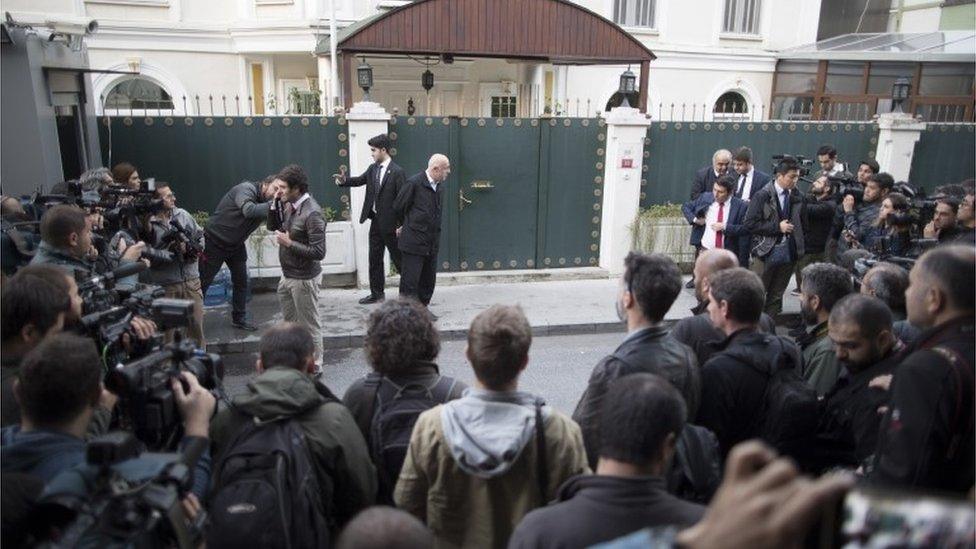
The investigation has moved to the consul's residence
A Turkish official is quoted by Reuters as saying "strong evidence" was found but no conclusive proof.
Turkish security sources have long made clear they have audio evidence pointing to his murder.
The search of the consulate continued into the early hours of Tuesday. Samples, including soil from the garden and a metal gate, were reportedly taken.
Turkish President Recep Tayyip Erdogan told reporters the investigation "was looking into many things such as toxic materials and those materials being removed by painting them over".
The New York Times and CNN, quoting unnamed sources, reported on Monday that Saudi Arabia would acknowledge that Mr Khashoggi's death was the result of an interrogation that went wrong.
What is alleged to have happened at the consulate?
CCTV footage shows missing Saudi journalist Jamal Khashoggi entering the Saudi consulate in Istanbul.
Mr Khashoggi, who has written for the Washington Post and is a US resident, arrived at the consulate at 13:14 local time on 2 October to obtain paperwork so he could marry his Turkish fiancée, Hatice Cengiz.
Reports suggest an assault and struggle took place in the building.
Turkish sources allege he was killed by a 15-strong team of Saudi agents pictured entering and leaving Turkey on CCTV footage released to media outlets.
There are allegations in Turkish media that his body was dismembered in the building.
Mr Khashoggi was once an adviser to the Saudi royal family but fell out of favour with the country's rulers and went into self-imposed exile.
- Published17 October 2018
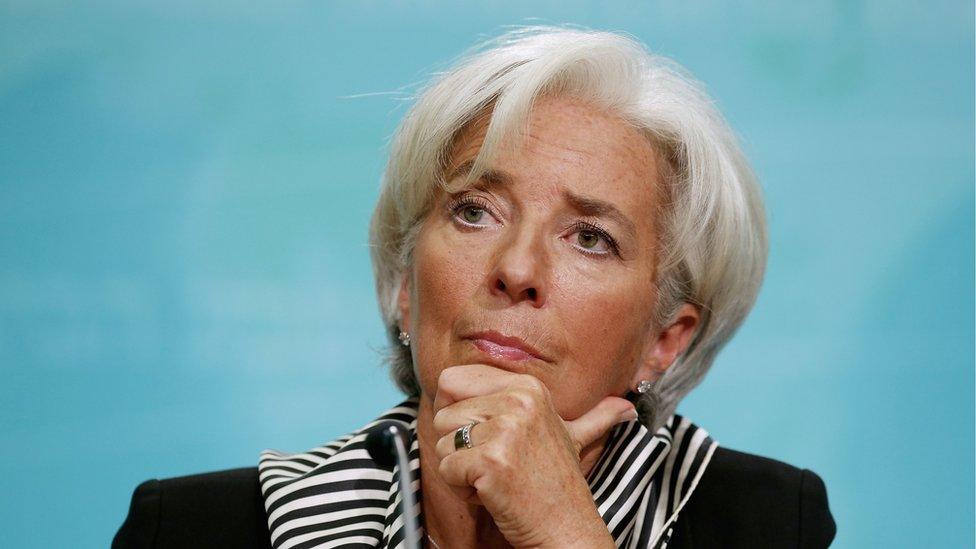
- Published11 October 2018
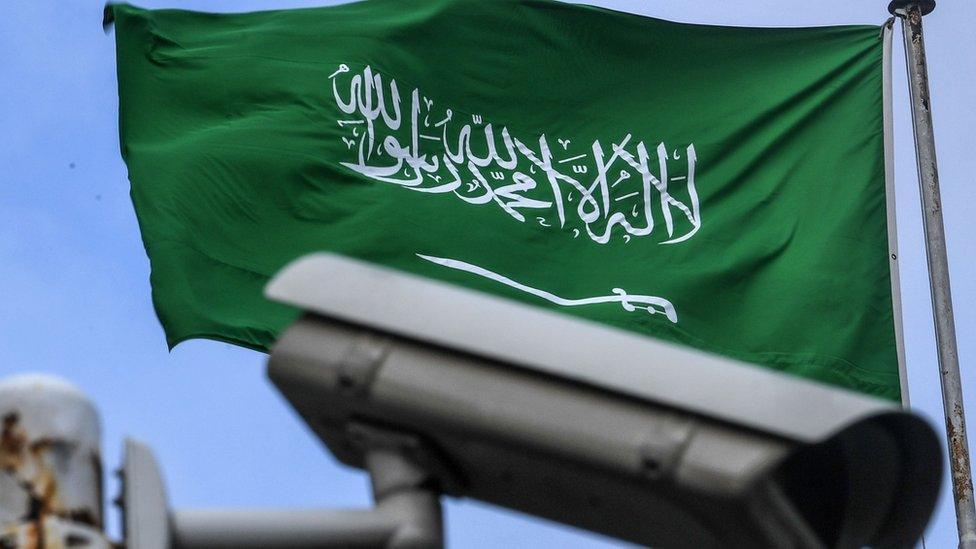
- Published12 October 2018
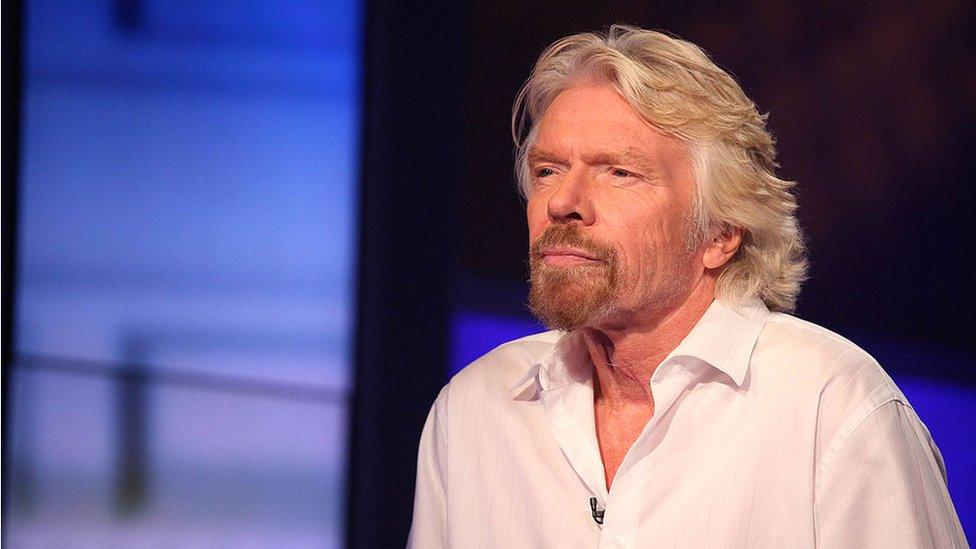
- Published10 October 2018
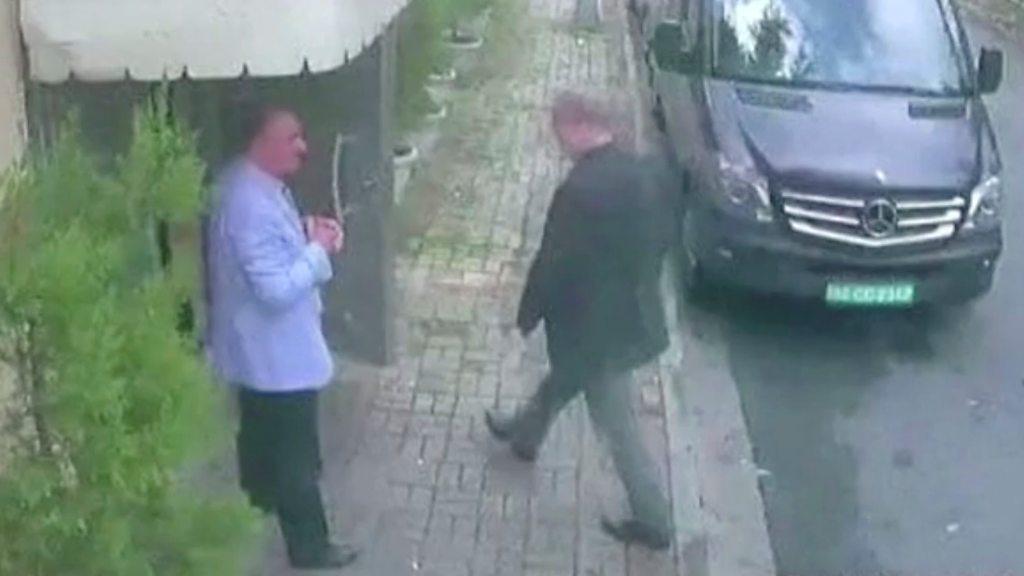
- Published10 October 2018
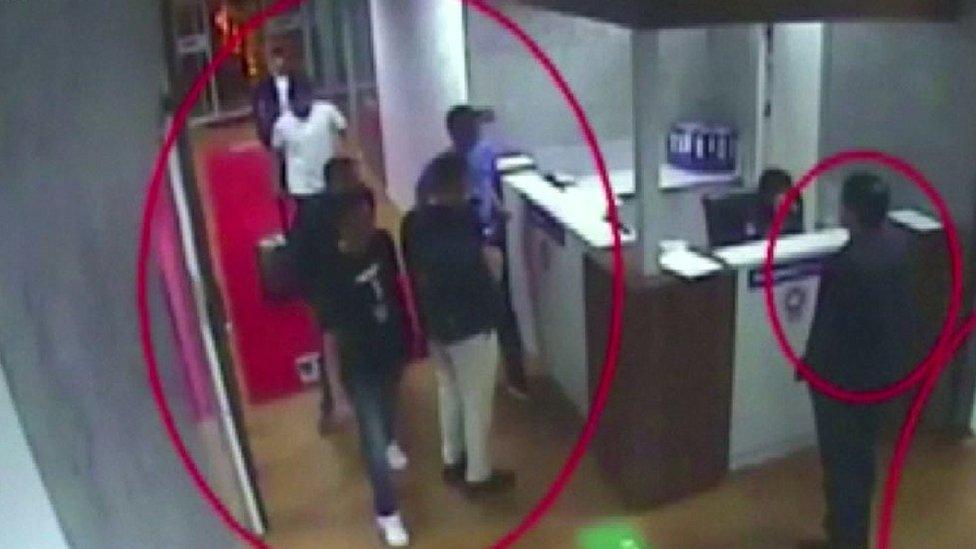
- Published9 October 2018
